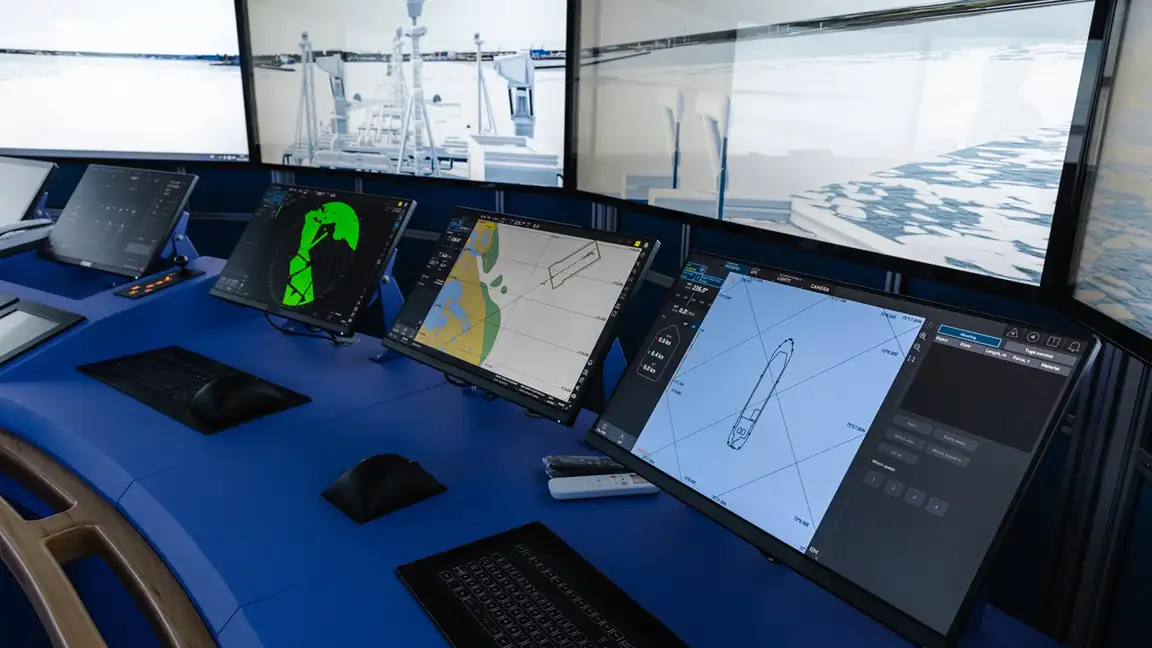Introduction
The maritime industry is undergoing rapid change, and the demand for highly skilled dredging professionals is stronger than ever. To meet this need, educational institutions in the Netherlands are investing in advanced dredging simulators that offer students realistic, safe, and sustainable learning environments. These simulators bridge the gap between classroom theory and field experience, ensuring that future professionals are well-prepared for the challenges of maritime training.
Advancing Maritime Education in the Netherlands
On September 4, 2025, five new dredging simulators were inaugurated at the Shipping and Transport College (STC) in Rotterdam. This initiative, supported by the O&O Fund Waterbouw and multiple maritime education institutes, represents a milestone in preparing the next generation of dredging experts.
The simulators are part of a nationwide effort to strengthen maritime training in the Netherlands. With growing infrastructure demands and the importance of sustainable dredging, this investment demonstrates how technology can shape the future workforce.
Types of Dredging Simulators Installed
The rollout of new training equipment includes:
- Three fixed dredging simulators at STC Rotterdam
- One mobile simulator that can travel between maritime institutes across the country
- One fixed simulator at Nova College in IJmuiden/Beverwijk
By combining fixed and mobile solutions, these facilities expand access to practical maritime training. Students from different institutes can now practice dredging operations without being limited by location, creating equal opportunities nationwide.
Technology Behind the Simulators
The dredging simulators were developed by Dutch Dredging Simulators (DDS), a collaboration between Controllab, DE Klop B.V., and MSA-Service. Together, these partners designed systems that replicate real-world dredging environments.
Students encounter scenarios that mirror actual operations, including equipment handling, sediment removal, and environmental challenges. This technology allows them to test decision-making skills, operational efficiency, and teamwork in a controlled and risk-free setting.
Hands-On Training Benefits
The primary advantage of dredging simulators is their ability to provide practical training without the risks and costs associated with real-world operations. Students gain hands-on experience in a safe, sustainable, and cost-effective way.
Key benefits include:
- Risk-free practice before working on real dredging vessels
- Improved technical skills in operating complex equipment
- Confidence-building through repeated scenario training
- Sustainable learning by reducing environmental impact compared to on-site training
By integrating simulators into maritime training, institutions ensure that graduates are workplace-ready from day one.
Expanding Opportunities Across Institutes
One of the most innovative aspects of the program is the mobile simulator. Unlike fixed installations, this unit can be transported to different educational sites, making maritime training more accessible.
This flexibility enables smaller institutions with limited budgets or facilities to benefit from cutting-edge dredging simulators. It ensures that every student, regardless of location, has equal opportunities to build skills essential for their career.
The Future of Dredging Education
The introduction of advanced dredging simulators marks the beginning of a new era in maritime education. As technology continues to evolve, simulators are expected to become even more immersive, incorporating artificial intelligence, augmented reality, and data analytics.
These advancements will not only improve training efficiency but also support the industry’s shift toward sustainability. By equipping students with practical knowledge and technical expertise, the Netherlands is setting a global example in maritime training excellence.
Conclusion
The inauguration of new dredging simulators in the Netherlands reflects a strong commitment to innovation in maritime training. With fixed and mobile solutions now available across multiple institutes, future dredging professionals can develop their skills in realistic, safe, and sustainable environments.
As the maritime sector continues to grow, simulator technology will play a central role in shaping competent, confident, and environmentally responsible dredging experts ready to meet global challenges.
